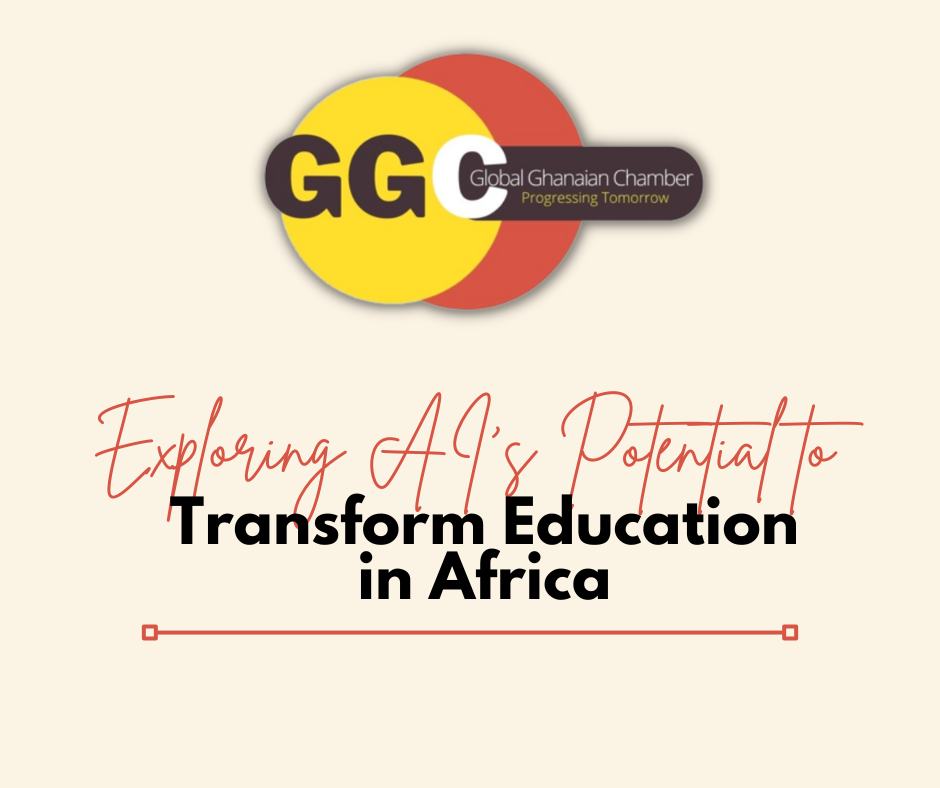
Introduction: Education is the cornerstone of societal progress, and in today’s digital age, the integration of technology, particularly Artificial Intelligence (AI), holds immense promise for revolutionizing education systems worldwide. In Africa, where access to quality education remains a challenge for many, leveraging AI presents a unique opportunity to bridge gaps, enhance learning outcomes, and empower the continent’s youth for the future. In this blog, we delve into the transformative potential of AI in African education and explore actionable strategies to harness its benefits effectively.
Understanding the Landscape: Africa faces multifaceted challenges in education, including limited access to resources, inadequate infrastructure, shortage of qualified teachers, and socio-economic disparities. These challenges impede the delivery of quality education and perpetuate inequalities across the continent. However, amidst these challenges lies an unprecedented opportunity to leverage technology, particularly AI, as a catalyst for positive change.
Harnessing AI for Personalized Learning: One of the most significant advantages of AI in education is its ability to personalize learning experiences. Through data analytics and machine learning algorithms, AI can assess individual learning styles, preferences, and strengths, enabling educators to tailor instruction to meet the unique needs of each student. This personalized approach not only enhances engagement and retention but also fosters a deeper understanding of concepts and promotes critical thinking skills.
Actionable Strategy: Implement AI-powered adaptive learning platforms that analyze student performance data to deliver customized learning paths and real-time feedback. Collaborate with edtech startups and developers to create localized solutions that cater to diverse cultural and linguistic contexts across Africa.
Closing the Skills Gap with AI: In a rapidly evolving job market, equipping students with relevant skills is paramount for their future success. AI can play a pivotal role in addressing the skills gap by providing opportunities for hands-on, experiential learning in emerging fields such as data science, machine learning, and robotics. By integrating AI into the curriculum, educational institutions can empower students with the technical competencies and problem-solving abilities needed to thrive in the digital economy.
Actionable Strategy: Establish AI labs and innovation hubs within educational institutions to provide students with access to cutting-edge technologies and hands-on learning experiences. Forge partnerships with industry leaders to develop AI-focused internship programs and mentorship initiatives that expose students to real-world applications of AI in various sectors.
Promoting Inclusive Education through AI: Inclusive education is essential for ensuring equal opportunities for all learners, including those with disabilities or special needs. AI-powered assistive technologies have the potential to remove barriers to learning and facilitate greater inclusion in the classroom. From speech recognition software for students with hearing impairments to text-to-speech tools for those with dyslexia, AI innovations can empower diverse learners and create a more inclusive educational environment.
Actionable Strategy: Collaborate with disability rights organizations and assistive technology experts to identify AI solutions that address the specific needs of students with disabilities. Advocate for policy reforms and funding initiatives to integrate assistive technologies into mainstream education systems and promote accessibility for all learners.
Fostering Ethical AI Practices: As we harness the power of AI in education, it is crucial to prioritize ethical considerations and mitigate potential risks. From data privacy concerns to algorithmic bias, ethical dilemmas abound in the use of AI technologies. Educators, policymakers, and technologists must work together to establish clear guidelines and frameworks for the responsible development and deployment of AI in education, ensuring equity, transparency, and accountability at every stage.
Actionable Strategy: Invest in AI ethics training programs for educators and school administrators to raise awareness of ethical principles and best practices in AI usage. Encourage interdisciplinary collaboration between computer science, ethics, and education departments to integrate ethical considerations into AI curriculum development and implementation.
Conclusion: The transformative potential of AI in education is vast, and its impact on Africa’s educational landscape holds immense promise for the future. By embracing AI as a tool for innovation and empowerment, we can create more inclusive, personalized, and equitable learning environments that prepare the next generation of African leaders for success in the digital age. Through strategic partnerships, ethical leadership, and a steadfast commitment to quality education for all, we can harness the power of AI to transform education and unlock the full potential of Africa’s youth.





